Women’s day: Volunteers in Zambia get on their bikes to tackle poor nutrition
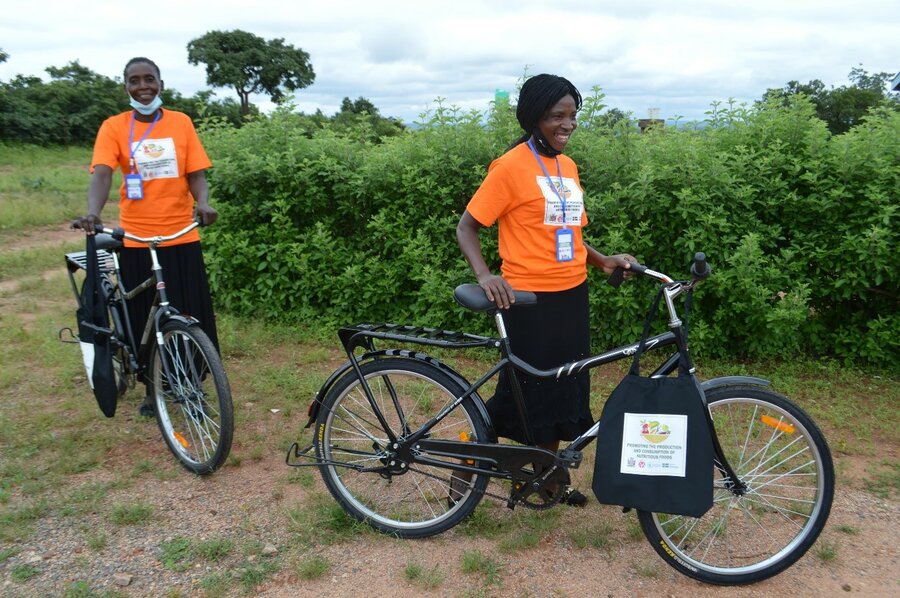
“My first-born daughter was malnourished and suffered,” says Clara. “She was very sick, and I had to take her to the hospital for help. I wanted to learn more about nutrition and good feeding practices to stop this from happening again and help other families.”
Clara is at the forefront of the fight against malnutrition in the country, alongside 480 other community health volunteers trained by the World Food Programme (WFP) to spread messages on the importance of good nutrition and infant and young child feeding practices.
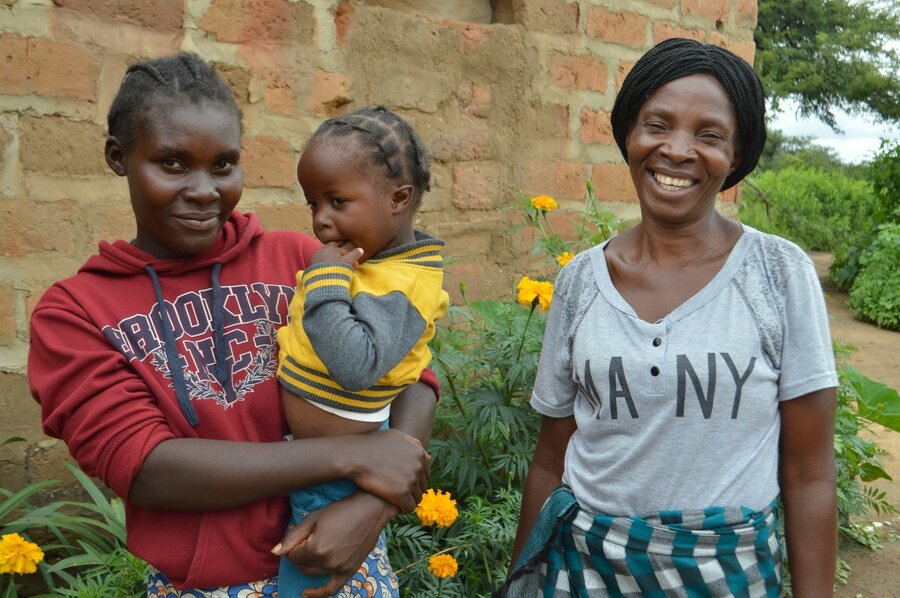
The 52-year-old lives with her five children and granddaughter in Mazabuka, Zambia — the country has one of the highest rates of malnutrition in the world with around 35 percent of children aged under 5 suffering from stunting, a condition that prevents them from growing and developing as they should.
Clara is one of 480 trained community health volunteers, 80 percent of whom are women.
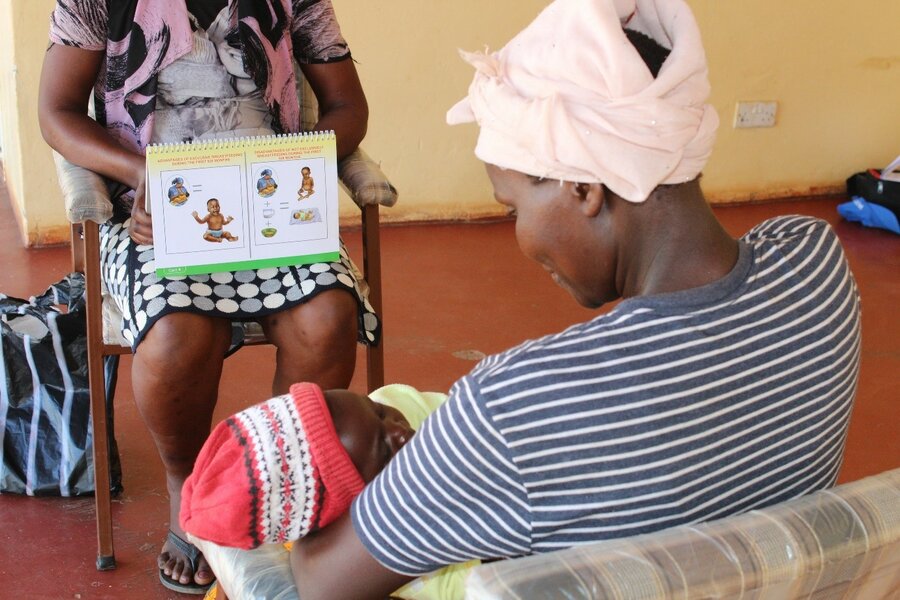
For the past decade, Clara has been a leader in her community – sharing knowledge acquired from training from WFP and the Government to build a healthier society.
Each and every day, Clara goes door-to-door to mobilise caregivers for weekly nutrition meetings, where she shares knowledge on good feeding practices, provides cooking demonstrations to improve food preparation for infants, and encourages people to grow and consume a diverse range of locally available food, such as cowpeas, pumpkin leaves and groundnuts.
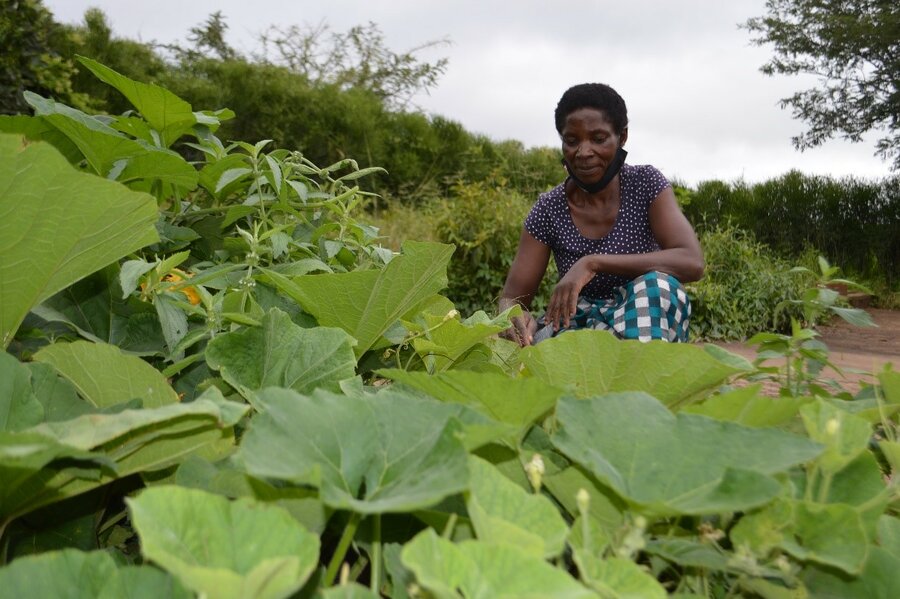
“I’m responsible for educating around 200 to 300 people in my village. But transport is an issue, it’s difficult to reach people far away from my home,’’ she says.
Currently, she is reaching around 140 mothers, adolescent girls and appointed guardians.
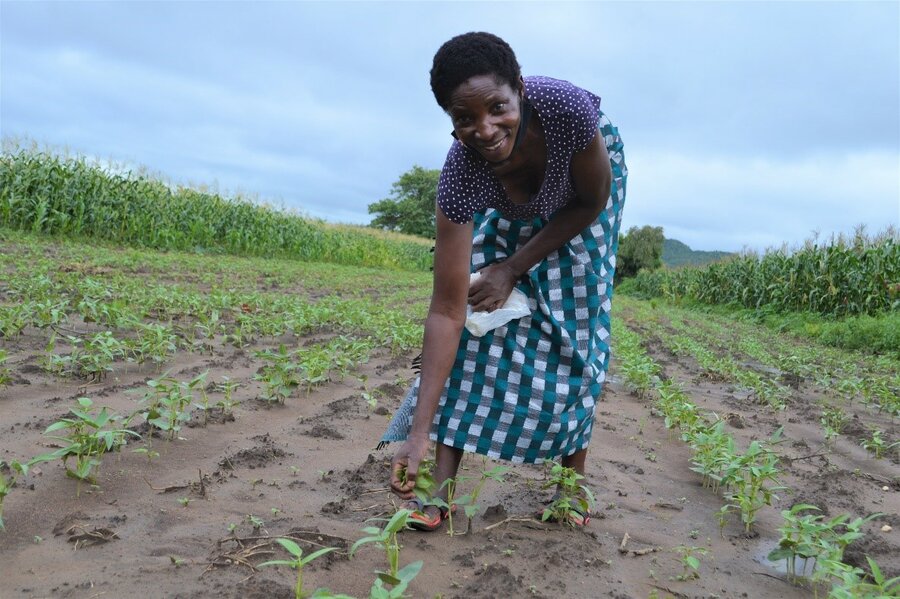
“As a caregiver myself, mothers listen to me and make positive changes for their children’s future,” says Clara. “I encourage more women to take up leadership roles as community health volunteers.”
“I’ve seen that our work can make such a difference. Children in my village are healthier now, they eat a wider range of locally available food and mothers exclusively breastfeed children under the age of six months,” she adds.
While conducting door-to-door visits, Clara sometimes meets infants and children suffering from malnutrition. She refers them to her local hospital – Mugoto Health Clinic – for professional care.
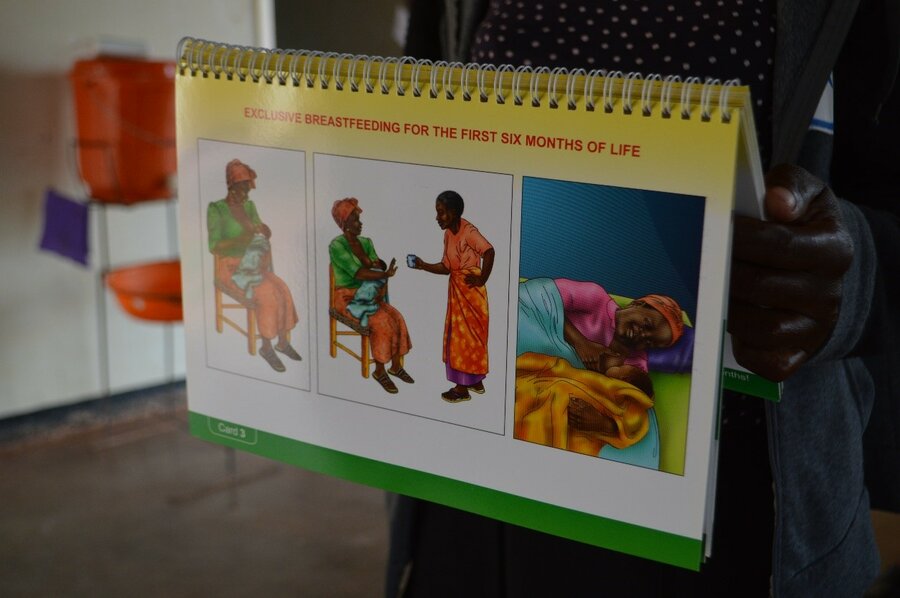
“I met a one-and-a-half-year-old infant who was very malnourished and unwell. She was only being fed porridge and groundnuts as her parents did not know about nutrition. I advised them to start feeding her different types of locally available food and take her to the local health clinic,” says Clara.
“The clinic saw her weekly for growth monitoring appointments,” she says. “Her parents started feeding her different types of food like cowpeas, pumpkin leaves and rapeseed leaves: within three months she looked so much better.”
Ireen Chitombwe, 43, is a midwife and nurse at Mugoto Health Clinic who cared for the baby and praises Clara’s work helping to make cases of malnutrition visible — these might otherwise go undetected with a long-term impact on children’s health and prospects.
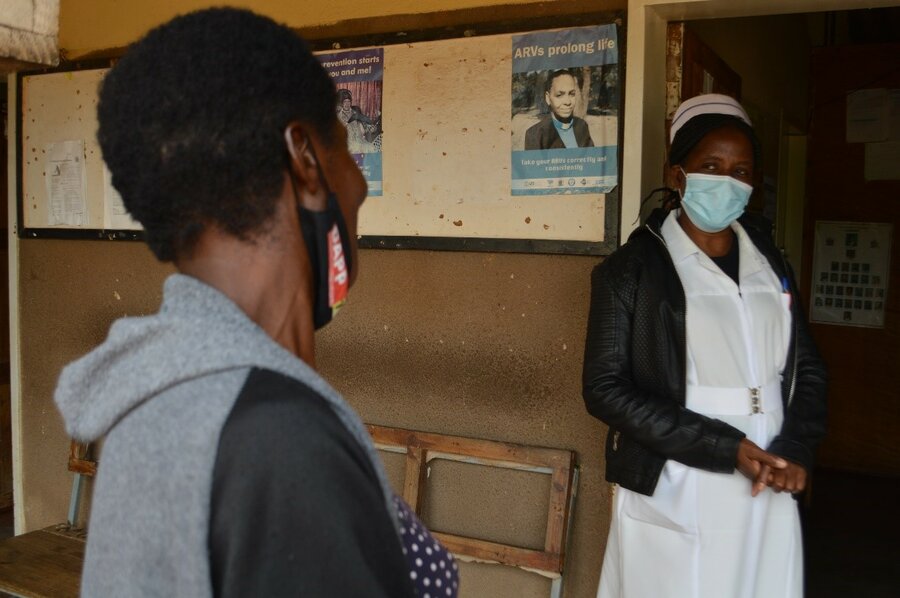
The coronavirus pandemic has made Clara’s work much more difficult. People are afraid of gathering in groups for weekly nutrition meetings in case they catch the virus. Attendance is down and her community is missing out on vital information they need to improve people’s health.
“I’ve been conducting household visits as people no longer want to attend group meetings. However, I only have time to visit around two to three households per day,” says Clara.
To ensure communities continue to receive vital messages on the importance of a healthy diet and good feeding practices during the coronavirus pandemic, WFP is distributing bikes and training manuals to 480 community health volunteers like Clara across the country.
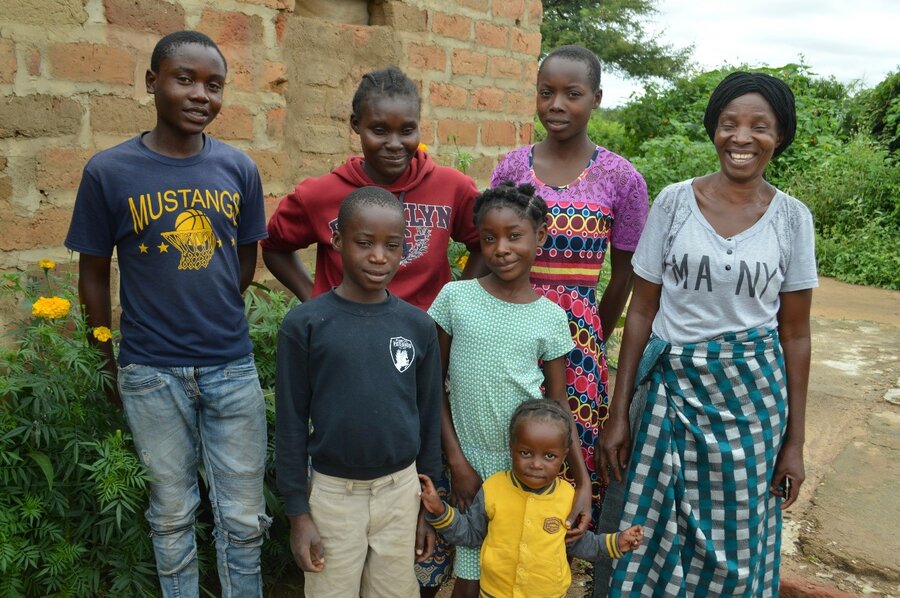
This is vital — because of poor nutrition, for every 1,000 births 63 children die.
“I’m so happy to receive this bike. It will help me conduct more household visits during the day and reach people further away from my home. Transport will no longer be an issue – I can travel further distances in shorter times,” says Clara.
She adds: “I can’t wait to get out there and educate more people on the importance of nutrition. With the coronavirus, I’m even more motivated. Eating well will protect my village against the virus and help them to spend less on hospital fees.”
